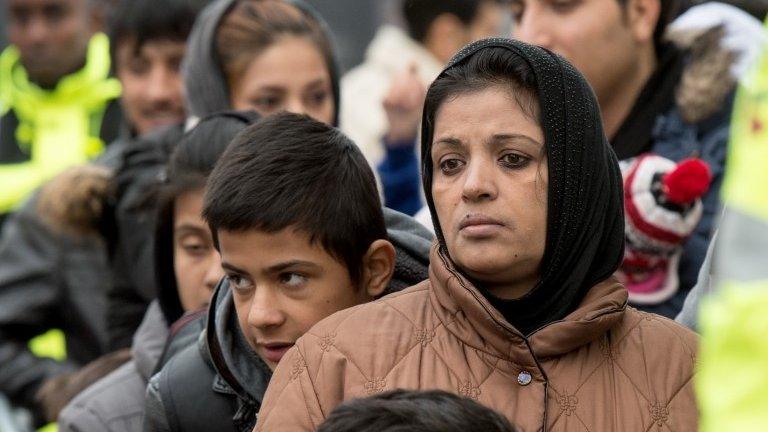Migrant crisis: Athens shelter for some, despair for others
- Published
The BBC's Nick Thorpe: "Greece used to handle this crisis by letting the migrants leave. Now it has to find shelter for them instead"
The Greek government has signed an agreement with the UN Refugee Agency (UNHCR) and European Commission to create 20,000 places for refugees in private accommodation in Athens.
It is the latest effort to ease the pressure on Athens, a major bottleneck in the mass influx of migrants into the EU.
The scheme will cost €80m ($88m; £58m), funded by the EU.
It will help two kinds of refugees - those who apply for asylum in Greece, and those waiting for relocation to other EU countries under the EU quota scheme.
"Today we stand in solidarity with Greece and with children, women and men seeking refuge in Europe," said Kristalina Georgieva, European Commissioner for Human Resources.
"The whole scheme can be successful only if it is accompanied by large-scale emergency reception, assistance and registration efforts in the countries most impacted by arrivals," said George Okoth-Obbo, UNHCR Assistant High Commissioner for Operations.
Athens has seen a surge in the number of migrants since the Greek authorities closed a camp at Idomeni on the Macedonian border on 9 December, where several thousand people refused entry to Macedonia were staying.
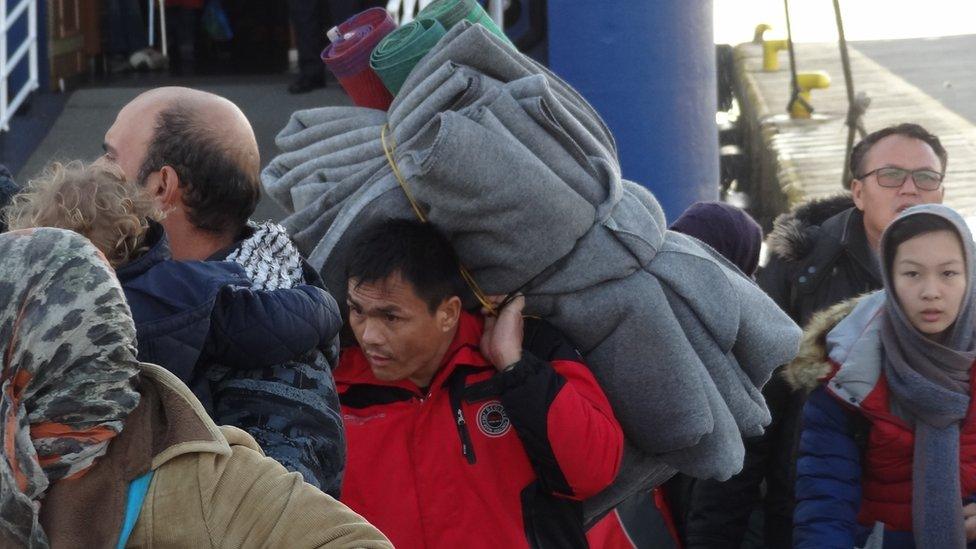
Athens has recently seen an even greater surge in the number of migrants
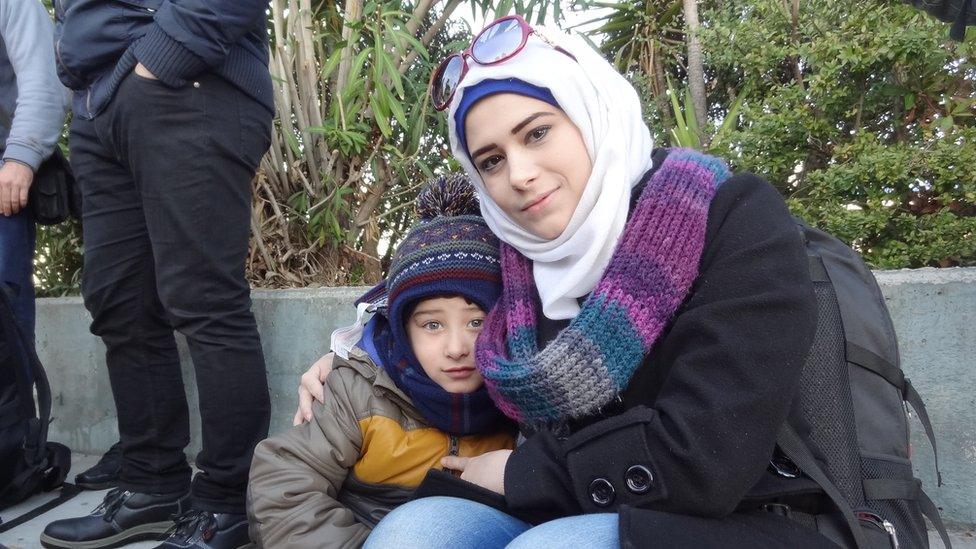
Most migrants are given 30 days to leave the country
Merkel: Migrant crisis 'historic test'
Syrians, Afghans and Iraqis continue to be allowed to travel through the Balkans, but all other nationalities are being turned back to Athens. They sleep in the Tae Kwon Do stadium - a former Olympic facility - or, if they still have money left, in cheap hotels.
Most were given 30 days to leave the country. After that expires, they can be arrested by the police and deported.
Tariq, from Morocco, found a room near Omonia Square for €20 a night. His permission to stay in Greece expires on Christmas Day.
He has €470 left. A trafficker wants €1,200 to get him to Austria. He is trying to arrange for relatives in Germany to wire him the money. But the simple registration paper from the Greek border police on the island of Lesbos is not enough to satisfy the money transfer people.
In another square, other migrants with genuine ID papers offer to receive money on behalf of those who do not, for a percentage.
Tariq's friend left two days earlier, with the help of the same smugglers' network. If he reaches Austria safely, Tariq will follow the same route - if he can get the money he needs.

Migrants in Greece
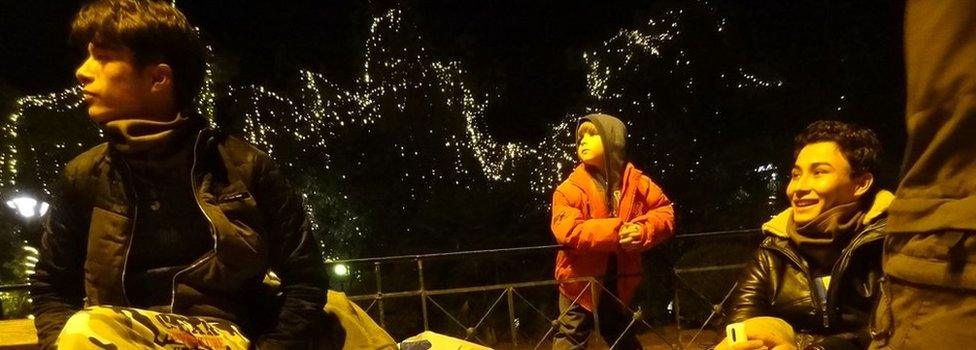
After dark, migrants wander lost among the Christmas lights of Athens

More than 100 people live as squatters in a building in Notara Street, run by a migrant solidarity group. There are mostly Iranians in the smoke filled common room.
A board lists the items most urgently needed: duvets, drinking water, folding beds, juice, croissants and wipes.
Several Iranian men say they have had enough of travelling. Their papers will soon expire, so they have bought plane tickets for €200 each back to Tehran.
Another man called Hassan - not his real name - says he used to work for the police in Iran and could be executed if he returns.
A third, Jalal, says he is waiting for a letter from a British doctor, which would strengthen his case for a visa for the UK, where he wants to go to care for his sick brother.
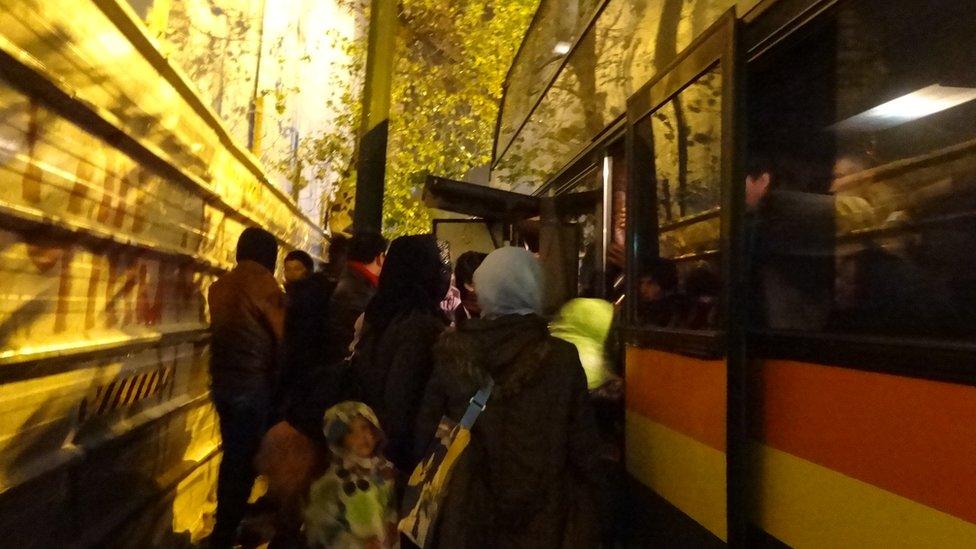
Buses leave regularly carrying migrants to their next destination
After dark, migrants wander lost among the Christmas lights of Victoria Square. In another side street, another double-decker coach leaves for the Macedonian border.
Who are your passengers? I ask the driver. He shrugs - "mostly Afghans". But I'm not sure he believes that. Afghan and Syrian documents command high prices on the black market.
Until the next twist in this refugee tale.
A note on terminology: The BBC uses the term migrant to refer to all people on the move who have yet to complete the legal process of claiming asylum. This group includes people fleeing war-torn countries such as Syria, who are likely to be granted refugee status, as well as people who are seeking jobs and better lives, who governments are likely to rule are economic migrants.
- Published14 December 2015
